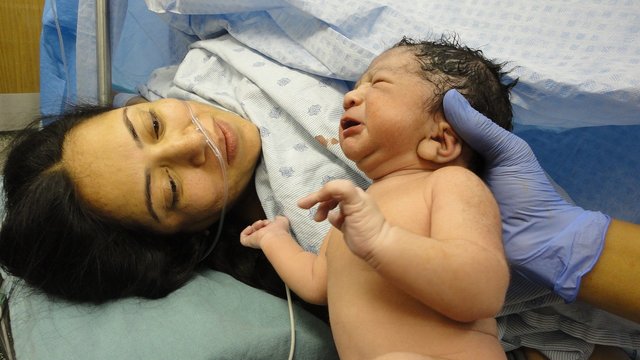Maternal and Infant deaths – still a big problem in the 21st century.
Hi,
I recently read the devastating news that ten infants tragically died in a fire at a hospital in India. Despite being a rapidly developing nation and one of the world’s top 10 economies, India still struggles with healthcare issues. The idea that patients, especially new-borns, died in a hospital due to such preventable incidents is deeply disturbing. If lives aren’t safe in hospitals, where else can people turn for care? This shocking incident made me to think about the problem related to child birth and safety of the pregnant women and their children.

(pixabay image)
Today, most births take place in hospitals worldwide, yet millions of new-borns and mothers still die during and after childbirth each year. According to UNICEF, "Children face the highest risk of dying in their first month of life, with an average global rate of 17 deaths per 1,000 live births in 2022," though this is a significant improvement from 37 deaths per 1,000 live births in 1990. Additionally, the World Health Organization reported that "nearly 800 women die each day from preventable causes related to pregnancy and childbirth."
Although modern healthcare, improved nutrition, and awareness have helped reduce maternal and infant mortality, there are still major challenges—sometimes stemming from the hospitals themselves.
In the wild, animals give birth without medical intervention, and historically, women also used to give birth outside of hospitals. Women in past generations, especially those who engaged in physical labor, often experienced fewer complications during childbirth. Many stories from earlier times speak of women working in fields or around the home and giving birth with relatively low labor pain. Deaths back then were often due to malnutrition, superstition or infections from unsterile tools rather than birth complications themselves.
Now, in the modern era, almost all women give birth in hospitals. Caesarean sections are common, and most women are advised to avoid manual labor during pregnancy. While this may seem beneficial, it may also reduce physical strength, weakening muscles and making labor more difficult. Additionally, excessive diet and reduced activity during pregnancy can lead to overweight babies, which may contribute to birth complications.
One overlooked issue is the prevalence of antibiotic-resistant bacteria and other germs in hospitals. Women in labor and their newborns are often exposed to harmful bacteria in these settings, leading to infections that can be fatal during their stay in hospitals and even after years of being exposed to such germs. This is very concerning in the developing countries, where even basic necessities like clean beds and functioning fire extinguishers are lacking. These conditions only make a difficult situation worse.
The modern healthcare system has undoubtedly have improved the situation, but issues with hospital infrastructure, infection control, and even cultural shifts in pregnancy and birth practices are still contributing to maternal and infant mortality. If we really want to improve outcomes for mothers and infants, we need to address these underlying problems. This is necessary in the areas where healthcare resources are limited.
Please note that data may vary as I am not an expert in statistics. I was just trying to draw your attention towards the problem.
@project.hope and @crypto.piotr please see this post
Link of the news and data sources is as below:
https://www.dailystar.co.uk/news/world-news/ten-newborn-babies-killed-horror-34123719
https://data.unicef.org/topic/child-survival/neonatal-mortality/
https://www.who.int/news-room/fact-sheets/detail/maternal-mortality
It is actually becoming a great concern for your generation now which I strongly believe needs to be looked into because it is finally too late. The issue is that we are not learning and that is the issue with us actually